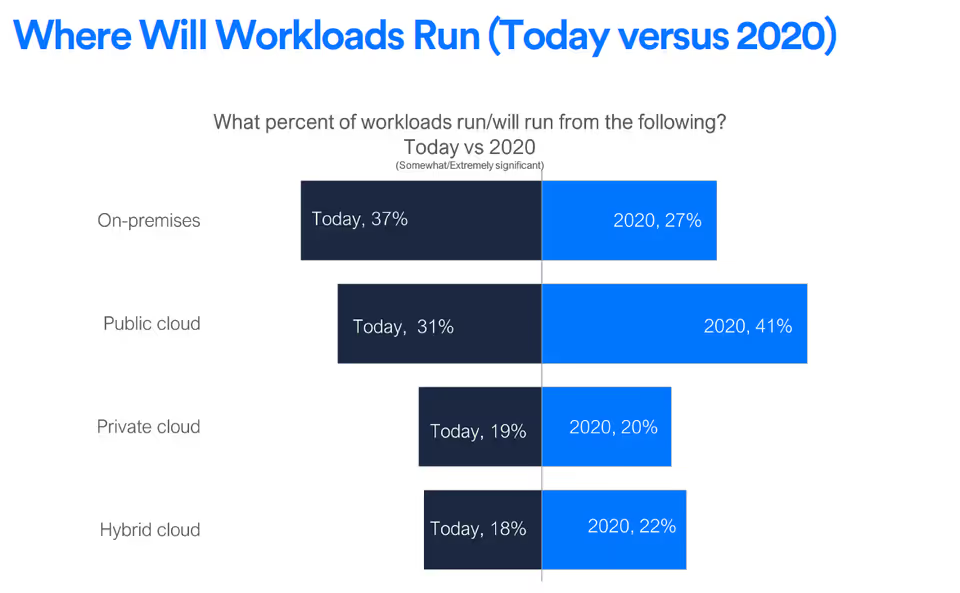As organizations go through digital transformations and demands for data access and collaboration increase from business users, corporate law firms and legal departments need to understand the dynamics of cloud security in order to make informed decisions about how to storage their legal entity data and corporate secretarial records.
According to Forbes, 83% of enterprise workloads will be in the cloud in 2020. As spend and investment dwindles for on-premise software, the ability for on-premise vendors to support and continue to provide security for on-premise software will decline.

The majority of businesses have moved to cloud software due to a number of known benefits, including:
- Reduced IT costs to manage servers and software updates
- Not having to buy additional server hardware as usage increases
- Ability for users to access software and data from anywhere over a web browser
- No installation or maintenance costs
- Constantly improving software with better customer support
In addition, access to frontier technology and modern business operations such as artificial intelligence and internet of things (IoT) are only available in the cloud
Is on-site data safe?
Businesses often believe that their data is safer if stored on physical servers in their own offices. This idea is rooted in the belief that visibility equals access. However, when we look at the evidence, holding your data physically in your office is less secure than holding it offsite in facilities whose sole function is to secure data. For example, research from Harvard Business Review found that 60% of all cyber attacks are conducted by insiders. Seventy-five percent of these attacks happen because of malice, while twenty-five percent are accidental. In July 2019, a disgruntled Florida lawyer broke into his former law firm’s office and stole several valuable items including the firm’s data servers where all client and business data was stored.
Data is Safer in the Cloud
Since the biggest threat to your data is people in your offices, cloud provides the logical threat reduction solution to move the servers off-site to secure data warehouses that your employees do not have physical access to. This eliminates the 60% of all cyberattacks coming from employees.
On top of this, cloud platforms such as AWS, IBM Cloud, Google Cloud and Microsoft Azure, have a sole focus on ensuring that your data is safe. Collectively, the main cloud platforms spend hundreds of billions on physical security around the data warehouses such as barbed wire, electric fences, biometric access systems, armed guards, fire suppression, and other physical security systems. They also invest heavily into cyber-security systems such as encryption, sharding and other defense mechanisms. These are investments that no single company’s IT budget could afford. Simply as a function of capital investment and organizational expertise, your data is safer stored on a cloud platform such as AWS than it is on your servers at your offices.
In addition to this, all the major cloud platforms are certified with stringent standards such as ISO 27001, SOC2 and PCI meet compliance requirements for highly regulated industries such as healthcare and defense.
With 83% of IT leaders confident in cloud security, by moving your corporate governance and subsidiary management workloads to the cloud your organisation is taking the best measures to ensure the security and integrity of your data.
Athennian’s Cloud Security Platform
Athennian employs robust round-the-clock monitoring tools, controls, policies and a dedicated security team to ensure that it provides the strongest security for its customers. Athennian's underlying AWS infrastructure has met a host of audit and security standards including SOC 1, SOC 2, PCI-DSS and EU-US Privacy Shield framework. In addition, Athennian has modeled its security and risk management processes according to National Institute of Standards and Technology (NIST) and SOC Type II series of standards. This page provides summary information only.
About Athennian
Athennian is the top reviewed legal entity management cloud platform for law firms and in-house corporate teams. Athennian is used by innovative organizations that value modern software with elegant automation and workflows. Integrating entity data management, document assembly, eSign, org charts, and e-file, Athennian is selected by leading law firms and corporate legal and tax teams to scale legal entity governance. Athennian offers rapid migration services for customers from any legacy database including ALF, CorpLink, EnAct, GlobalAct, EnGlobe, FastCompany, Corporate Focus, Blueprint (Diligent Entities), GEMS, hCue, Effacts and more.




.svg)








-p-500.webp)
-p-500.webp)
-p-500.webp)
.webp)
